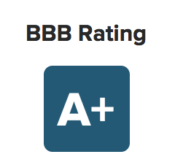
Juveniles under the age of 18 can be prosecuted as sex offenders in New Jersey. If a juvenile is convicted of any type of sex crime, they can legally be charged and tried as an adult. While juvenile defense lawyers are often able to argue for reduced sentencing on account of the age of their clients, when it comes to other charges, sex crimes are a notable exception.
The Sex Offender Registration and Notification Act (SORNA), signed into law in 2006, requires juveniles at least 14 years of age who have been adjudicated with a sex crime to register as federal sex offenders.
However, different factors determine whether a minor can or will be charged with a sex crime. Understanding those factors can make the difference between getting convicted as a sex offender and getting acquitted.
The severity of sex offender charges, as well as the punishment associated with them, is based on Megan’s Law – a law specific to New Jersey that utilizes specific tiers to determine the severity of a sex crime and the punishment associated with it – even when it comes to minors.
Possible Charges and Typical Penalties
If a juvenile is accused of a sex crime, multiple charges could be brought against them. These charges will fall under specific categories and varying degrees of severity. For instance, a rape charge is going to hold a harsher punishment than groping, even though they are both forms of sexual assault.
- Aggravated sexual assault in the first degree: If the victim is less than 13 years old, a conviction leads to 25 years to life in prison. If the victim is over 13, the typical sentence is 10 to 20 years.
- Sexual assault in the second degree: The typical punishment is five to 10 years in prison.
- Aggravated criminal sexual assault in the third degree: The standard punishment is three to five years imprisonment.
- Criminal sexual contact in the fourth degree: Those convicted can face up to 18 months in prison.
Additional Factors That May Affect Penalties
Certain legal terms should be understood before defending a child being charged with a sex crime. Knowing terms like “sexual penetration,” “sexual conduct,” and “intimate parts” will make it easier for a minor to fully understand and answer questions without confusion.
Understanding the language used within the law can keep you or your child from being convicted of a worse offense than necessary.
There are additional factors that can affect penalties, including:
- Age of the offender;
- Criminal history;
- Whether they were charged under federal or state laws;
- Judge’s discretion.
Again, it’s very unlikely that a minor charged with a sex crime will receive any “special treatment” or a lesser punishment if they’re of an age where they understand the crime committed. It’s a notable exception to the penalties juveniles typically face when compared to adult sentences. However, a judge might reduce a minor’s sentence or the severity of the charge based on the factors above.
Minors Tried as Adults
Minors as young as 15 years of age can be tried as adults in New Jersey. It depends on the opinion of the judge, as well as any history of criminal activity.
It’s always more beneficial for the minor involved to be tried as a juvenile, as penalties are often less severe depending on the degree of the juvenile sex crime. A second-degree sex crime as a juvenile, for example, can lead to up to three years in juvenile detention. An adult convicted of a second-degree sex crime can face five to 10 years behind bars.
Mandatory Minimums
Anyone convicted of a crime that carries a “mandatory minimum” has to serve the minimum set for that sentence. Mandatory minimums were developed to foster uniformity and consistency with certain crimes, leaving the sentence up to the law, rather than the discretion of a judge.
Per New Jersey Statutes Annotated (NJSA) 43-6(c), individuals convicted of sex crimes to serve mandatory minimums based on the degree of the crime. For a fourth-degree sex crime, the mandatory minimum is up to 18 months in prison.
There are also mandatory minimums when it comes to fines and other penalties. For example, a fourth-degree sex crime comes with a mandatory minimum fine of $10,000, while a second-degree sex crime has a mandatory minimum penalty of $150,000. If a juvenile is tried as an adult for a sex crime, they aren’t exempt from these minimums.
Registration as a Sex Offender
Incarceration and fines can be damaging to a minor, but having to register as a sex offender in the state of New Jersey can leave a lasting impact on their life and may negatively affect their future.
Juveniles must register as sex offenders just like adults if they are adjudicated. The requirements and types of offenses that require registration are the same. Some of those offenses include:
- Sexual assault;
- Kidnapping;
- False imprisonment;
- Criminal restraint;
- Aggravated criminal sexual contact.
Even though adjudicated juveniles have to register as sex offenders, they do have a unique opportunity that adult offenders don’t have – there is the possibility that their criminal records could be expunged as adults. This is a separate court process that requires a strong defense team and no further criminal history from the minor. It isn’t always a possibility, but if it applies to your or your child’s case, it’s the best way to remove that “black mark” from their future.
Defense Options
If your child has been charged with a sex crime, you should hire a professional to coordinate their defense. There is no room for error when it comes to defending a minor in a sex crime case. Having a strong defense strategy and understanding the terminology used in these types of cases will make a difference in the severity of the charge and potential sentencing. It’s important to work with a defense team that can bring down those charges as much as possible using proper definitions, factors such as age and criminal history, and situational considerations.
Confidentiality
Typically, access to juvenile records is limited to specific agencies and individuals to protect the identities of minors. If a minor has committed other crimes, their records may be “sealed” from the public.
However, the sex offender registry can be accessed by anyone and there are no “protections” in place for juveniles on the registry. While they may eventually be able to get their record expunged, their name and information will remain on the registry until then.











